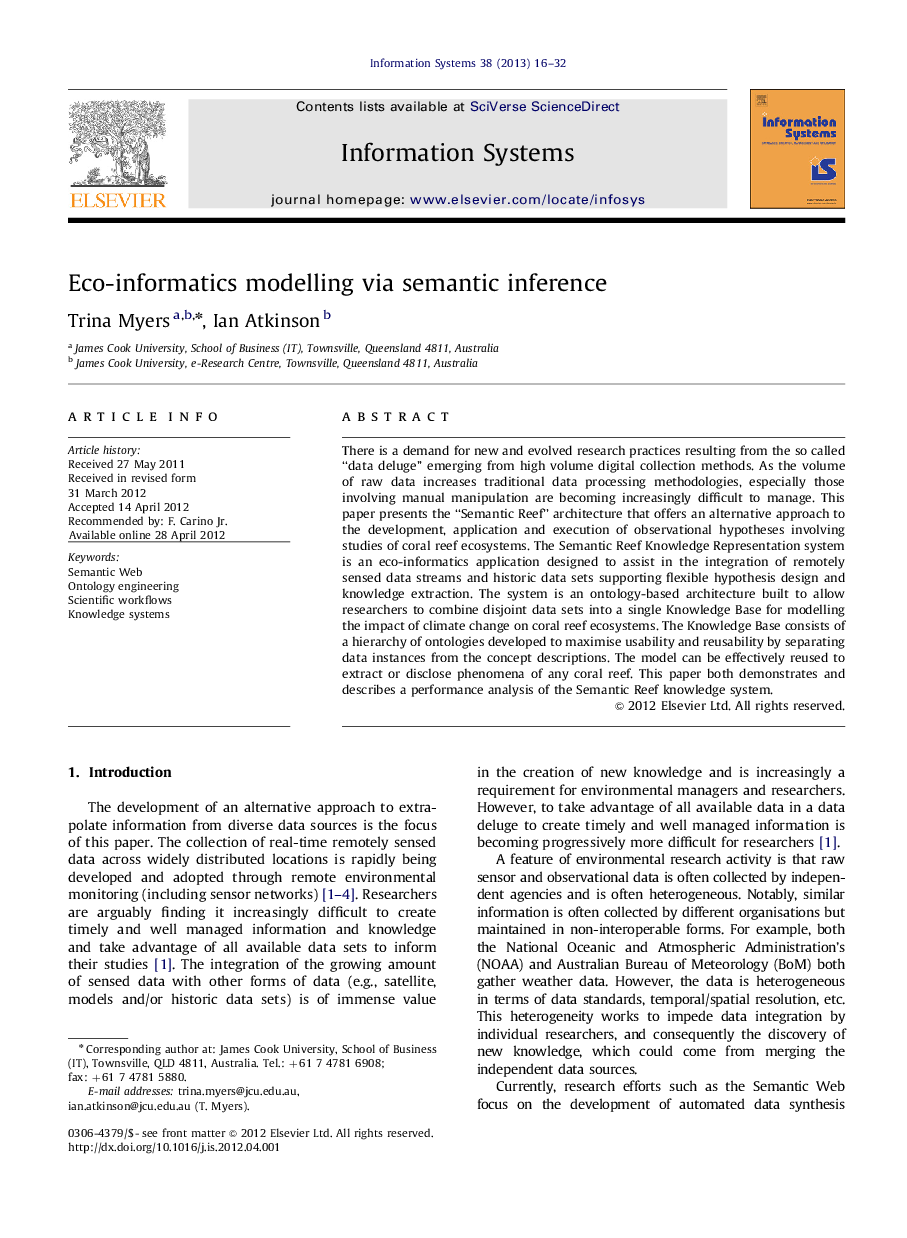| Article ID | Journal | Published Year | Pages | File Type |
|---|---|---|---|---|
| 396537 | Information Systems | 2013 | 17 Pages |
There is a demand for new and evolved research practices resulting from the so called “data deluge” emerging from high volume digital collection methods. As the volume of raw data increases traditional data processing methodologies, especially those involving manual manipulation are becoming increasingly difficult to manage. This paper presents the “Semantic Reef” architecture that offers an alternative approach to the development, application and execution of observational hypotheses involving studies of coral reef ecosystems. The Semantic Reef Knowledge Representation system is an eco-informatics application designed to assist in the integration of remotely sensed data streams and historic data sets supporting flexible hypothesis design and knowledge extraction. The system is an ontology-based architecture built to allow researchers to combine disjoint data sets into a single Knowledge Base for modelling the impact of climate change on coral reef ecosystems. The Knowledge Base consists of a hierarchy of ontologies developed to maximise usability and reusability by separating data instances from the concept descriptions. The model can be effectively reused to extract or disclose phenomena of any coral reef. This paper both demonstrates and describes a performance analysis of the Semantic Reef knowledge system.
► The performance analysis of the “Semantic Reef” Knowledge Representation system is presented. ► This eco-informatic system integrates sensor and historic data for knowledge extraction. ► The ontology-based architecture can be reused for different hypotheses of any coral reef globally. ► It has been tested and proven to handle disparate data to extract or disclose phenomena from the data.
